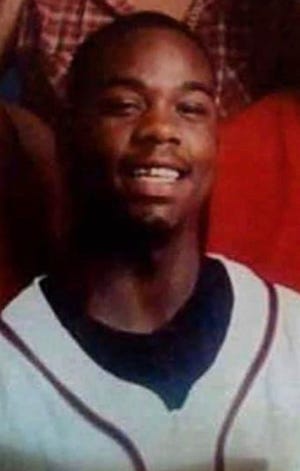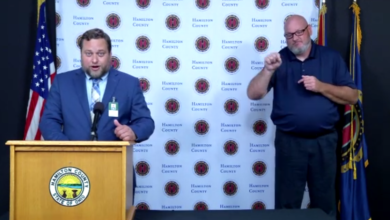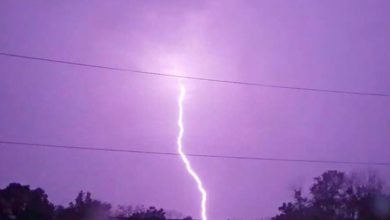
For the families of victims killed in unsolved murders, life is at a standstill.
The Enquirer is highlighting a series of cold cases, summarized and analyzed by the journalists whose careers largely focus on unsolved murders: the creators of Cincinnati.com's Accused podcast. If you have any information on any unsolved case, please reach out to the appropriate law enforcement agency. Suggestions for cases to highlight can be sent to [email protected].
The crime: When Sharonville Police fielded a call about a man struggling to stand up near the entrance of Sharon Woods park, they thought they would find someone stumbling around drunk.
What they found instead was the dead body of 18-year-old Raymond Wells III.
Wells had been stabbed to death, hit by a car and dragged several feet on June 28, 1999. Police at first zeroed in on a 16-year-old suspect, but Sharonville Detective Chris Wilson said this week that the charges were quickly dismissed for lack of evidence.
Twenty-two years later, Wilson is working with the Ohio Bureau of Criminal Investigations' Cold Case Unit in hopes of finally solving the slaying.

The ripple effects: How Wells’ case came to be “un-cold,” as Wilson put it, speaks to the lingering effects unsolved homicides can have. That is:
One of Wells’ nephews – a young man who hadn’t even been born when Wells was killed – came to Wilson with some questions. The nephew had grown interested in unsolved homicides and was writing a college paper about them. One of the cases he used to bolster his paper's thesis involved the death of his mother’s brother, a man he’d never met but whose unsolved slaying cast a shadow over the family.
“He came in to ask questions about his uncle’s case, and I said, ‘Let me look at the file. I’m happy to help,’” Wilson said.
Wilson had worked with the department in 1999 but wasn’t yet a detective and hadn’t played a role in the investigation. Once he familiarized himself with the evidence, he grew hopeful the case could yet be solved.
It so happened that Ohio Attorney General Dave Yost was launching a new Cold Case Unit at around this time. The next thing Wilson knew, the BCI was offering to help.
The family: Wells' family was always tight-knit. After his death, The Enquirer reported that relatives gathered at his Roselawn home to console one another.
"He was a good child, and I loved him," his tearful mother, Hazel Harris, said at the time. "They didn't have to do this to him."
More than two decades later, the loss is still too raw for Wells' mother to talk much about it, Wilson said. Because of that, she's the only close relative the detective hasn't yet spoken with.

He's met with several other relatives, though, including the mother of the nephew who helped thaw the case. On the whole, Wilson said the family remembers Wells as “a typical kid.”
“The last time his sister saw him, he was playing video games with a friend,” Wilson said.
Wells had been working toward a GED, paperwork for which arrived in the mail after his death, Wilson said.
Forensic advances: At the time of Wells’ death, police were flummoxed. Then-Chief Mike Schappa told an Enquirer reporter that his only hope was for someone to step forward and explain what the teenager might have been doing on Sharonwoods Court, and who he might have known in the area.
That’d still be helpful today, but Wilson said the answers could lie in the evidence that remains. Several items were sent to the state BCI for testing about six months ago. Wilson declined to describe the items but said there’s a decent chance that the killer’s DNA could be on some of them.
Wilson’s still awaiting the test results.
Beyond the physical evidence, Wilson said he’s digitizing hours of police interviews originally recorded on microcassette tapes.
Got tips? As optimistic as Wilson is about the potential of fresh testing bringing to light new evidence, he'd love to hear from anyone with information about the case. Tips can be left online through the Attorney General's website or called in to the Sharonville Police Department at (513) 563-1147.
Accused, reported by Enquirer journalists Amber Hunt and Amanda Rossmann, is an award-winning podcast investigating cold cases with three seasons available on all mainstream platforms such as Apple Podcasts and also at www.accusedpodcast.com.

Source link







